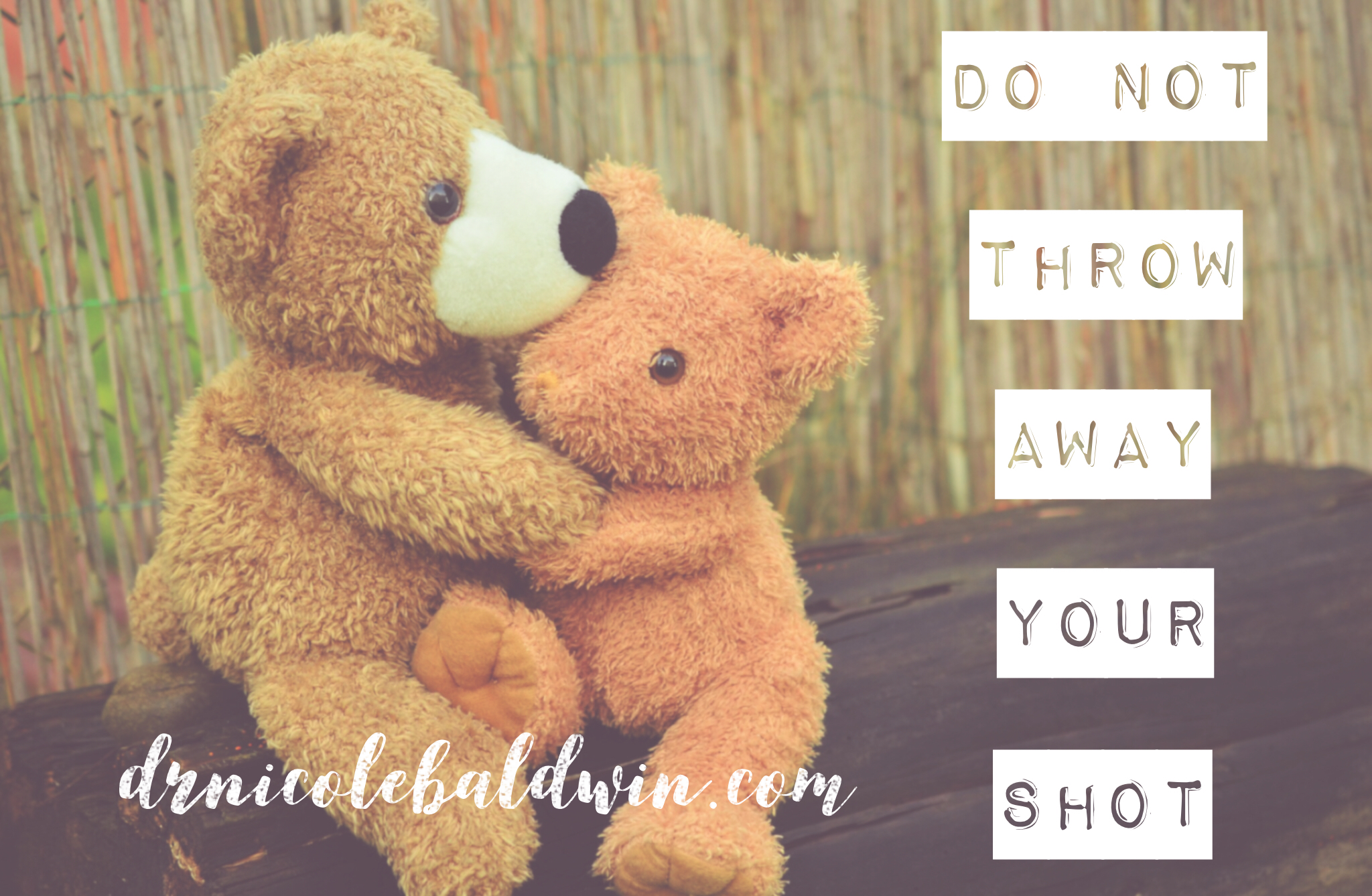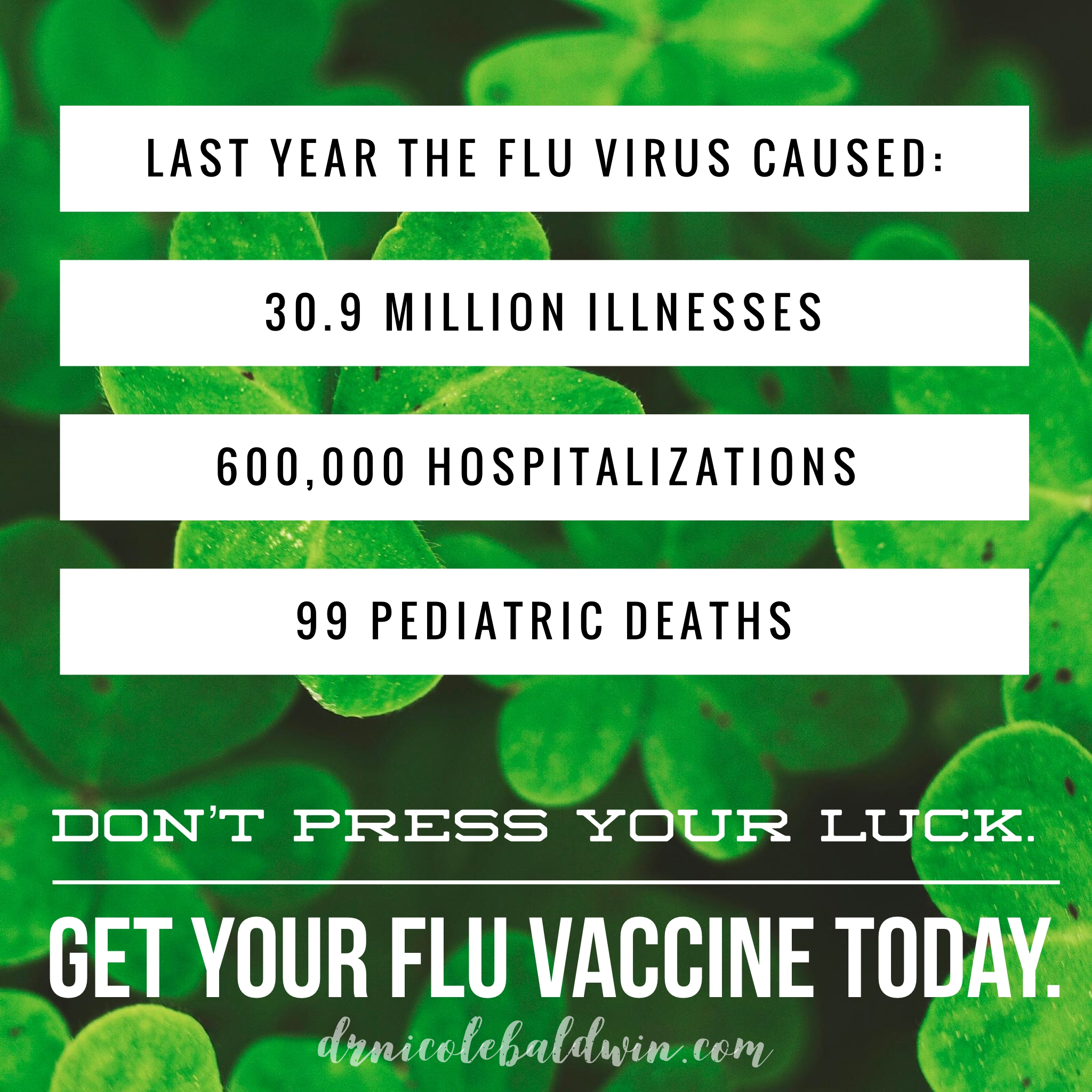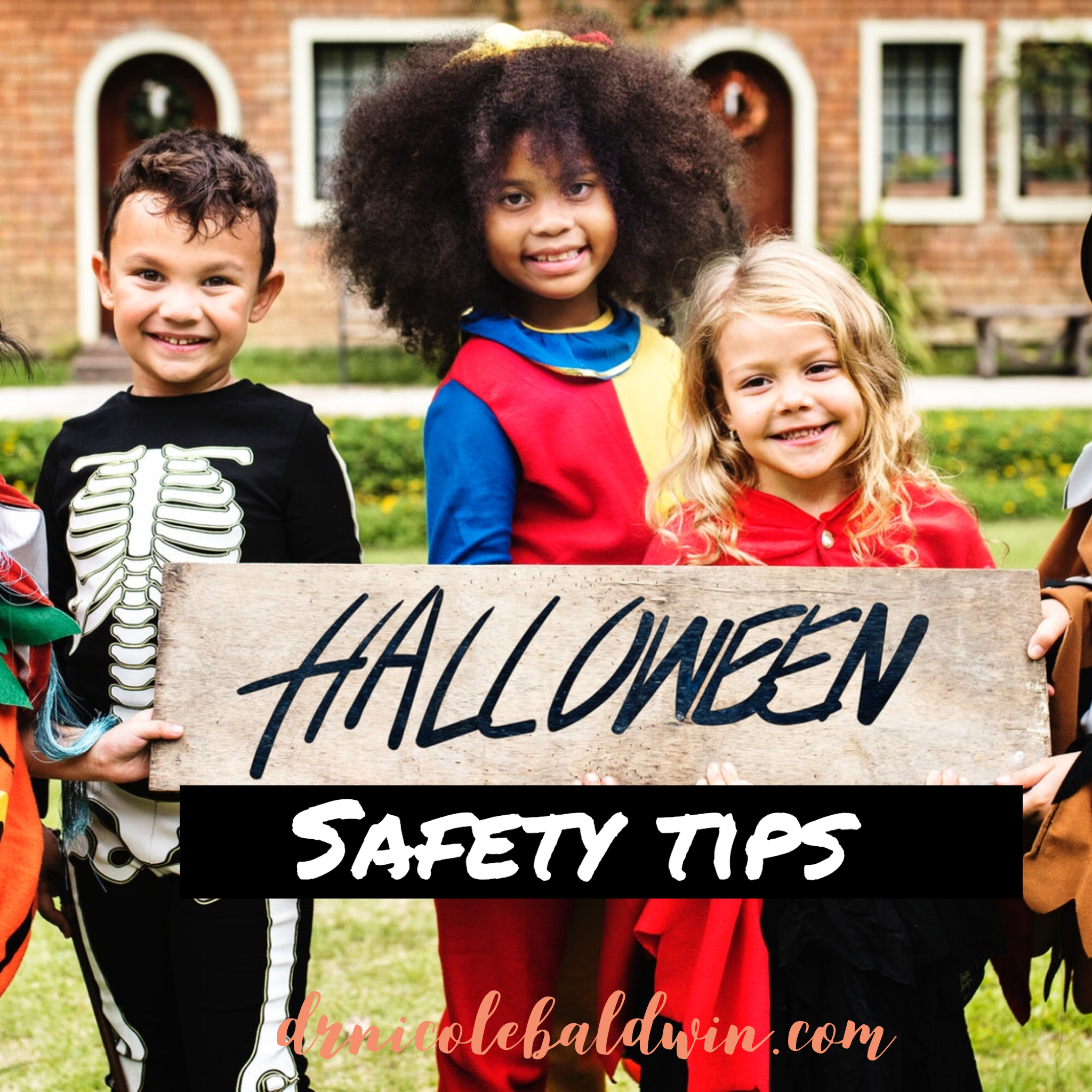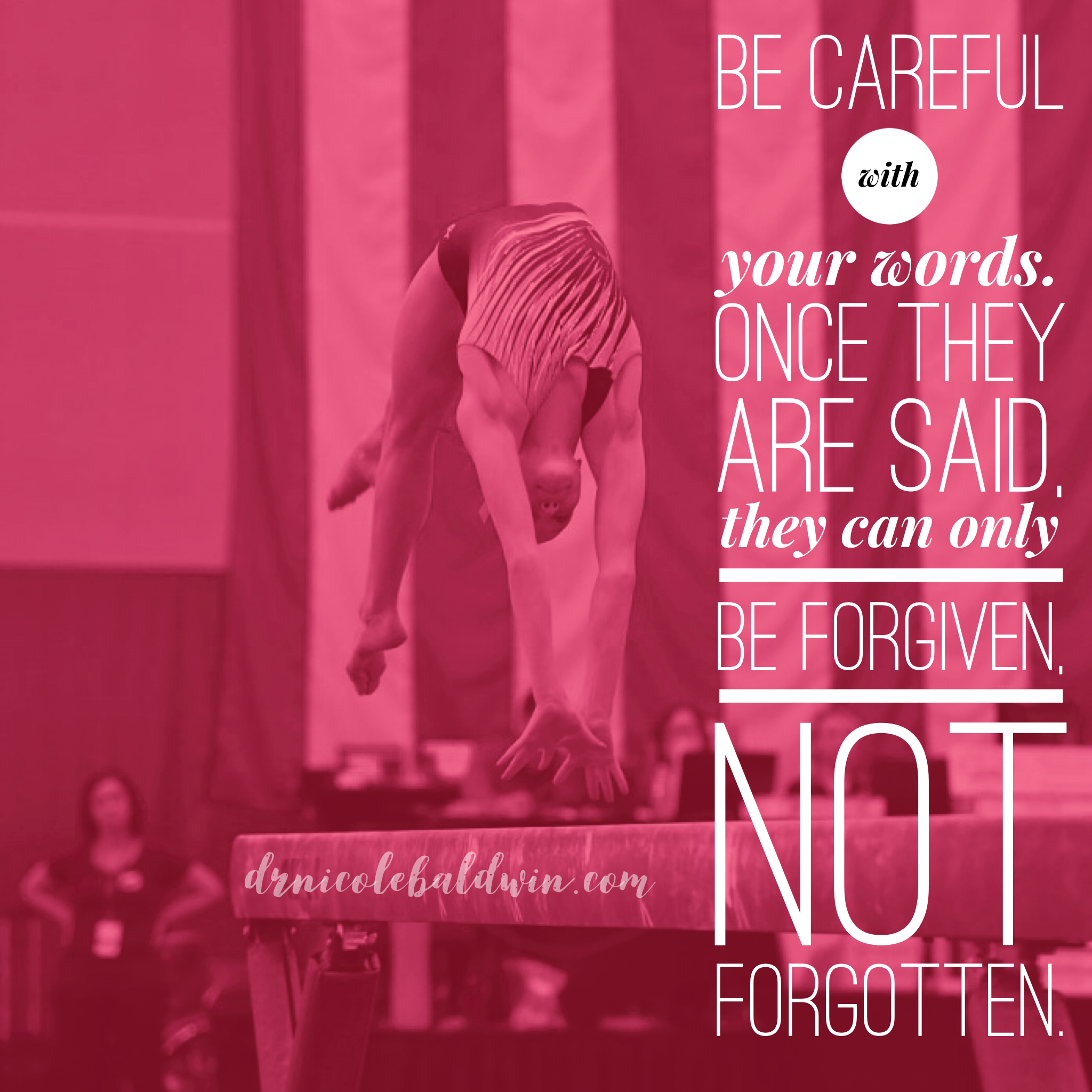
Do’s and Don’ts When Talking To Your Kids About Shots
It’s that time of year again – flu clinic time. Every fall the sounds of crying children fill the halls of my office as they come in for their flu vaccines. So often I see or overhear parents trying their hardest to do what is best for their child, but making some pretty common mistakes. Here is a list of my most common DO’s and DON’Ts for parents when your child is getting a vaccine:
DON’TS
DON’T TELL YOUR KIDS THAT SHOTS DON’T HURT. That is a lie. Shots DO hurt. Getting a shot consists of a needle breaking the skin. It’s not a pleasant sensation. When parents tell children that it “won’t hurt” and then it DOES hurt, that child feels like they were just lied to by the person they trust most in the world. Don’t get me wrong, it’s 100% OK to minimize their anxiety by saying things like “it’s just a pinch” or “it only hurts for a second” but PLEASE do not tell them that it doesn’t hurt at all.
DON’T THREATEN SHOTS FOR BAD BEHAVIOR. I can’t begin to tell you how many times I hear parents say “If you don’t sit still for the doctor, you’re going to get a shot.” Ummmm – no. If they are due for a vaccine, they are going to get a shot whether they sit still or not and if they AREN’T due for a vaccine, they’re NOT going to get a shot no matter how they behave. Nine times out of ten this backfires BIG TIME for parents (either the kid is great but still gets a shot so they don’t believe the parent in the future, OR the kid is terrible but doesn’t get a shot so that just reinforces the bad behavior). So please, choose something else as a discipline tactic. This one just doesn’t work.
DON’T VILLIFY THE PERSON GIVING THE SHOTS. I am 100% guilty of this myself (I know my patients have heard me say “I’m not the mean one that gives the shots”). Well, this ends NOW for me – and hopefully for you too. My medical assistants are some of the most caring people I know. They DON’T enjoy holding kids down or seeing them cry when they give vaccines. They give shots because vaccines keep kids healthy. So no more “here comes the mean lady with the shots” talk – instead talk about how vaccines help protect us from bad diseases and keep us healthy.
DO’S
DO be firm in your decision. Occasionally I will see parents waiver about getting their child’s vaccine done that day when the child starts to cry/melt down/beg to do it another day. While no parent wants to do something that is upsetting to their child, if you waiver and let the crying win, it just reinforces that if they cry/whine/beg enough, then they can get you to change your mind (and no one wants a child that whines to get their way).
DO talk to your children BEFORE the visit that they may have to get vaccines. This definitely needs to be individualized because some children with anxiety will fret over shots for DAYS before a visit if they think they will be getting them. For some children it may be better to say, “I’m not sure if you are due for any vaccines, but we will ask the doctor when we get there.” PLEASE DO NOT PROMISE NO SHOTS – because inevitably the child IS due for a vaccine and then it causes the child to feel like they were lied to (and then erodes trust for future visits).
DO allow your child a moment to cry and be upset after their shot. Like I said above, shots hurt. More than anything, some kids are just so scared about shots that their anxiety overcomes them, which manifests in tears. What they need at that moment is a comforting adult. Words like “you were so brave” or “I know it hurts, but it’s all done now and I’m so proud of you” will stop the tears MUCH faster than saying “stop crying” or “it doesn’t hurt that bad.”
If you have concerns about your child’s anxiety surrounding vaccines, PLEASE talk to your pediatrician. Some children have an actual phobia about needles which can be treated in therapy done by trained professionals. For more about needle phobia, here is a great blog post from Cincinnati Children’s Hospital.
Most importantly, remember that vaccines protect us and our children from devastating and sometimes deadly diseases. As the line from my favorite Broadway musical says:
Do NOT throw away your shot!!





4 Comments
Ned Ketyer, M.D.
Thank you, Dr. Baldwin, for expressing what pediatricians everywhere experience every day! Great care is assured when pediatricians and parents work as a team. Your patients and their parents are very fortunate to have you!
nbaldwinmd
Thank you, Dr. Ketyer!
Pingback:
Pingback: